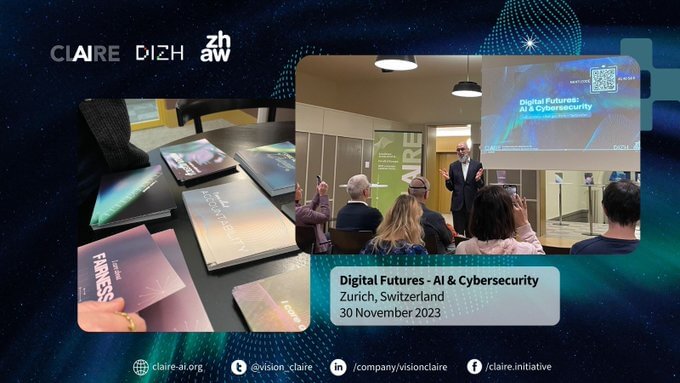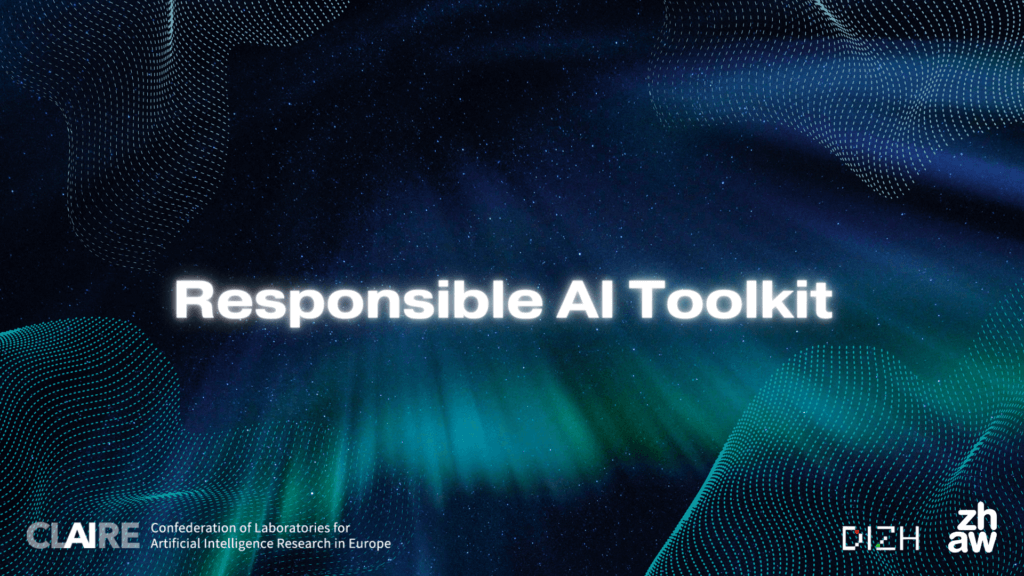On 30.11.23, the guests of “Digital Futures: AI & Cybersecurity” discussed the responsible use of AI.

AI and cybersecurity
Martin Burkhart from Cyber-Defence Campus highlighted a crucial aspect of cybersecurity research in Switzerland: the current concentration on specific research areas is overlooking others. The challenge lies in rectifying this imbalance with limited resources. He underscored the necessity for collaborative efforts to encompass all vital areas essential for research, investment, and policy. Burkhart also pointed out the dual role of AI in cybersecurity, benefiting both attackers and defenders.
AI and industry
Nikola Pascher from Mettler-Toledo addressed the impact of AI on industrial solutions. AI was described as a curse and a blessing, with Pascher emphasising the need for regulation without stifling innovation. Finding a balance between regulatory measures and the promotion of safe use cases is necessary in order to optimise the potential of AI in industrial environments.
AI and art
Paulina Zybinska from ZHdK asked questions about the evolving role of AI tools in the creative process. Advances in AI technologies for generating images, videos and music are continuously improving, which opens up a wide range of exciting applications. The artist expressed concerns about the potential loss of human creativity. It is necessary to talk about training sets, data distortion, harm caused by classifying images of people without their consent or involvement and the authorship of AI-generated content. She called for careful consideration of ethical considerations in the creative field.
Navigating risks and developing strategies for a secure digital future
The panel discussion with David Marti (Pour Demain), Raphael von Thiessen (Innovation Zurich), Marisa Tschopp (scip AG), Monika Reif (ZHAW), moderated by Ricardo Chavarriaga (CLAIRE) focussed on the risks of AI, the trustworthiness of technology, the rapid development of AI and the lagging pace of regulation. Strategies for a secure digital future were discussed, including a proactive approach through sharing practical insights, education and digital skills development, cybersecurity risk awareness, international collaboration and transparent data sources.
Responsible AI Toolkit
The event concluded with a reference to the Responsible AI Toolkit. This toolkit, curated by CLAIRE, aims to equip individuals and organisations with the necessary tools to deal responsibly with the complexities of AI. Continuously updated, the toolkit serves as a practical guide to implementing ethical AI practices.
